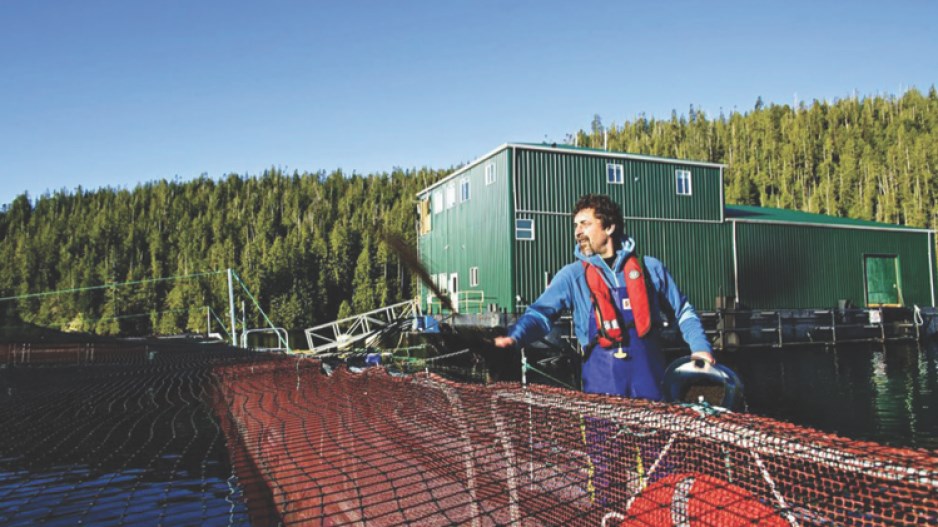The lack of a federal aquaculture act is hurting British Columbia salmon farming, and the sector as a whole in Canada, say industry leaders.
“We’re the only seafood farming industry in the world that doesn’t have its own legislation,” said Ruth Salmon, the executive director of the Canadian Aquaculture Industry Alliance (CAIA).
Salmon and Jeremy Dunn, the BC Salmon Farmers Association’s executive director, both say the system in place, coming under provincial and federal jurisdiction, is inefficient and outdated. They cite as examples fishing licences, which last for only one year even though salmon can take up to two years to farm, and the confusion arising from having both the provincial Ministry of Agriculture and the federal Department of Fisheries and Oceans independently oversee specific industry guidelines.
Right now, salmon farmers in B.C. need tenure to lease fishing spaces from the provincial government, yet the licences are issued at a federal level.
Ottawa needs to enact legislation that reflects the realities of the industry, both say.
“There’s a number of cumbersome issues that we deal with that the government is working on,” said Dunn. “And we’re confident that they’ll end up in an act. There’s a lot of hard work to do.”
Dunn said an act could help salmon farming grow from $800 million a year to $1.4 billion by 2020, resulting in 8,000 total jobs. By 2035, it could reach $3.5 billion and 20,000 jobs.
Putting pressure on the Department of Fisheries and Oceans to solidify sector regulations has been a focus of the farmed-salmon industry since the federal Cohen Commission, which investigated record low Fraser River sockeye salmon numbers in 2009. In his report three years later, Judge Bruce Cohen said some salmon farms should be shut down if they were found, upon further research, to pose more than a minimal risk to migrating salmon.
“Canada has such a great opportunity to lead the world in the need to expand access to farmed seafood,” said Salmon. “So we have such an opportunity here but we’re not taking a hold of that opportunity, and we feel that an act is a key factor.”
“In Canada we’re not able to meet our demand. We have such huge demand for our product, not only domestically but in international markets. And our competitors are taking advantage of this.” •




